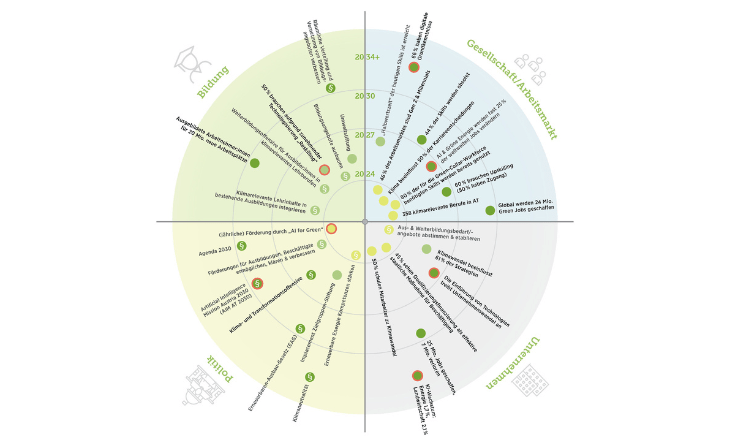In order to design business models in such a way that they are as sustainable as possible, technological innovations and, above all, people are needed to implement this transformation. As part of the Green Tech Radar, the Green Tech Valley Cluster and Deloitte Austria have therefore dedicated themselves to the future topic of green jobs and linked the analysis with the results of the current Deloitte Sustainability Study.
The result: green jobs have great potential. “According to our projections, up to 100,000 new jobs with a focus on sustainability could be created in this country over the next five years. This is a huge opportunity – but we now need a clear commitment from politics and business to make the most of it,” emphasizes Juliana Wolfsberger, expert for the Future of Work at Deloitte Austria.
According to the Deloitte study, 71% of companies already have at least one green job in their portfolio, but the term is still an empty shell for many: 67% of companies that do not currently have any green jobs do not expect to do so in the coming years. However, many existing jobs can become green jobs in the future with appropriate
“Sustainability is now on the agenda of companies, many of which are market or technology leaders in green products. This is where the interests of employees and companies meet in equal measure. With proactive further development of the respective skills in this area, the transformation on the labor market can also succeed,” adds Bernhard Puttinger, Managing Director of Green Tech Valley.
Cooperation as a major lever
Jobs that make a positive contribution to the environment and society are of great interest to the younger generations in particular. However, although green jobs are considered attractive on the labor market, they are often more difficult to fill than other positions due to the high shortage of skilled workers. It is also clear that women have been significantly underrepresented in green jobs to date. In order to change this, there will not only need to be a stronger focus on the female target group in future, but also cross-company initiatives.
“We know that many green skills are already available in companies. It is therefore a matter of identifying existing skills, combining them in new ways and developing them further. But building a broader talent ecosystem can also close the gap – for example through joint ventures, cluster organizations or general cooperation with other companies,” explains Juliana Wolfsberger. “In addition, the interplay between theory and practice must be right. Cooperation with educational institutions is an important factor here.”
No chance for greenwashing
In terms of retaining employees in the long term, companies with a clear sustainability claim and corresponding job offers will be ahead on the labor market in the future. This is because strong corporate values promote identification with the job and therefore also employee loyalty. However, it is not enough to simply promise green jobs – the promises must also be kept.
“Today’s talents cannot be fobbed off with empty words. They have clear demands of their employer and their job. Investments in green jobs and the sustainability strategy are therefore also an investment in the future for companies,” Bernhard Puttinger concludes.
Click here for the “Green Jobs & Green Skills” radar (incl. download)
Analysis “Green Jobs & Green Skills as an opportunity for the future”


